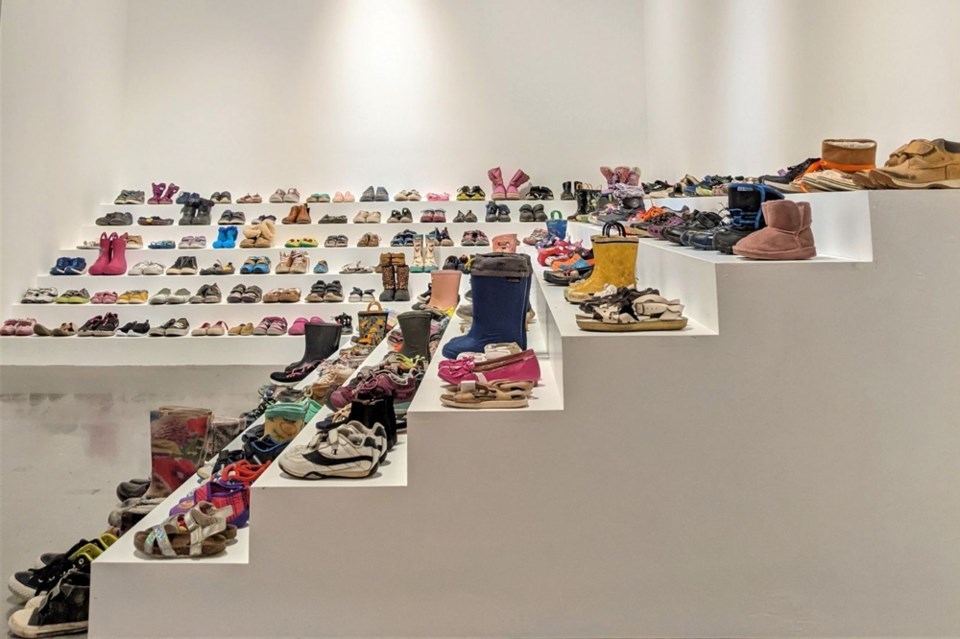New Westminster is a leader in British Columbia on work on implementing the Truth and Reconciliation’s calls to action but many B.C. municipalities are keen to do this work – they just need some help.
Trudi Goels is co-chair of Women Transforming Cities, a non-profit organization that advocates for more equity in communities. The group recently released its 81-page report: The TRC Calls to Action in B.C. Municipalities - Progress, Barriers, and Opportunities to Accelerate Implementation.
Goels said the group launched the work after noticing that reports were being done at the federal and provincial levels regarding the Truth and Reconciliation Commission’s calls to action, but nobody was really looking at what municipalities were doing.
“And there are 10 calls to action that are targeted at municipalities,” she told council at its Feb. 13 meeting.
The group set out to survey all of the municipalities in B.C., not to create a “report card” but to get a broader sense of what’s needed in the province to help move this work forward, Goels said.
According to Goels, many municipalities were keen to talk about the work being done in their communities.
“So, 54 per cent of the municipalities that we talked to had started on the Truth and Reconciliation Commission’s calls to action,” she said. “But they only started on one to three of those calls. There's a number of them they were struggling to get to.”
Of the municipalities who completed the group’s survey, none had answered all of the calls to action for municipalities.
“Small towns, as you can imagine, are having the hardest time doing this work, because they have the fewest resources, they don't have enough staff; they don't have enough funding for this work,” Goels said. “But there's lots of good news that comes out of this work as well.”
Goels, a New West resident, said she had a peek at New West’s responses, as she’s always curious to see how the City of New Westminster is doing.
“I'm really happy to say that I think that we are a leader in this work in New West,” she said. “And a big part is because the council made a decision that we need to move this work forward. And then more importantly, put money behind it so the work is being adequately resourced so that it can move forward. It’s really complicated doing this work in New Westminster; we already know this.”
The report considers the Truth and Reconciliation Commission’s calls to action that relate to local governments. These include:
Number 17: Reduce Barriers to name reclamation
Number 23: Enable access to culturally appropriate healing
Number 40: Support culturally appropriate services for survivors of violence
Number 43: Adopt and implement UNDRIP
Number 47: Reject concepts used to justify residential schools and land disposition
Number 57: Provide training for public servants
Number 75: Provide burial sites and honour children
Number 77: Provide records to the National Centre for Truth and Reconciliation
Number 87: Celebrate Indigenous achievements
Number 88: Support Indigenous athlete development
In 2015, the Truth and Reconciliation Commission of Canada published its final report, which detailed the experiences and impacts of the residential school system. The document included 94 calls to actions in a variety of areas, including child welfare, education, health, justice, language and culture.
In April 2018, New Westminster city council supported Coun. Nadine Nakagawa’s motion to endorse the TRC’s 2015 report, Honouring the Truth, as well as the Truth and Reconciliation Commission’s 94 “calls to action” and the United Nations Declaration on the Rights of Indigenous Peoples. The city stated it would use the declaration as a framework for truth and reconciliation.
Ginger Gosnell-Myers (Nisga’a and Kwakwak’awakw), a fellow, decolonization and urban Indigenous planning at Simon Fraser University’s Morris J. Wosk Centre for Dialogue, wrote the study’s forward. She said that advancing reconciliation throughout a municipality is about building and maintaining respectful and reciprocal relationships with First Nations and urban Indigenous communities.
“As 78 per cent of Indigenous Peoples in B.C. live, work, and study in urban and off-reserve areas, municipalities play perhaps the largest role in fostering Indigenous relations. Reconciliation gives us the opportunity to work together for a better future – and the TRC Calls to Actions are a direct roadmap to do this,” she wrote. “Across the country, this is a new goal of many municipalities: to acknowledge the truth that these lands have always been the unceded homelands of Indigenous Peoples and to co-create a local identity that benefits all. Yes, there is still a long way to go. But that’s the nature of meaningful reconciliation. It will take time, investment, and involve all of us to get it right.”




